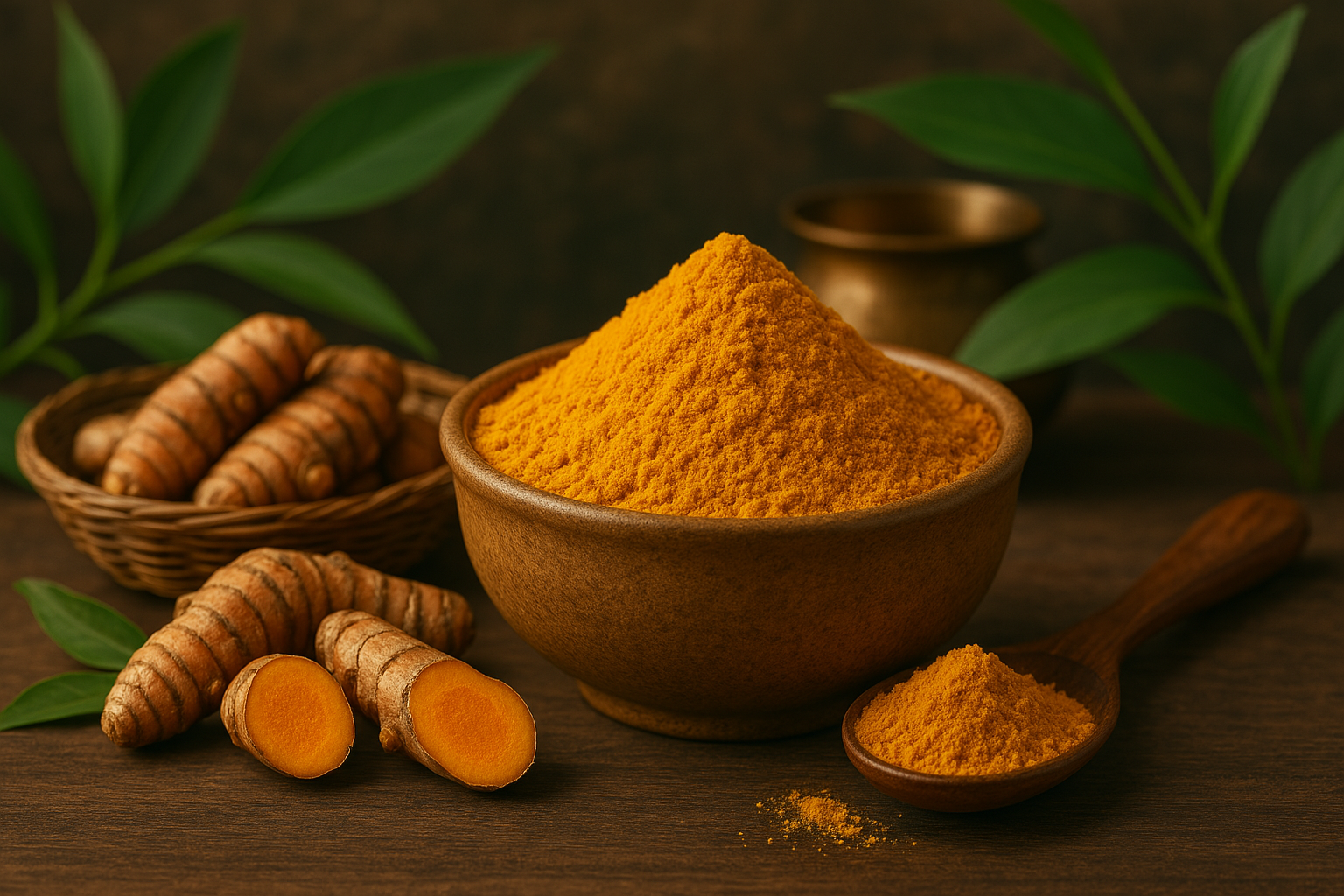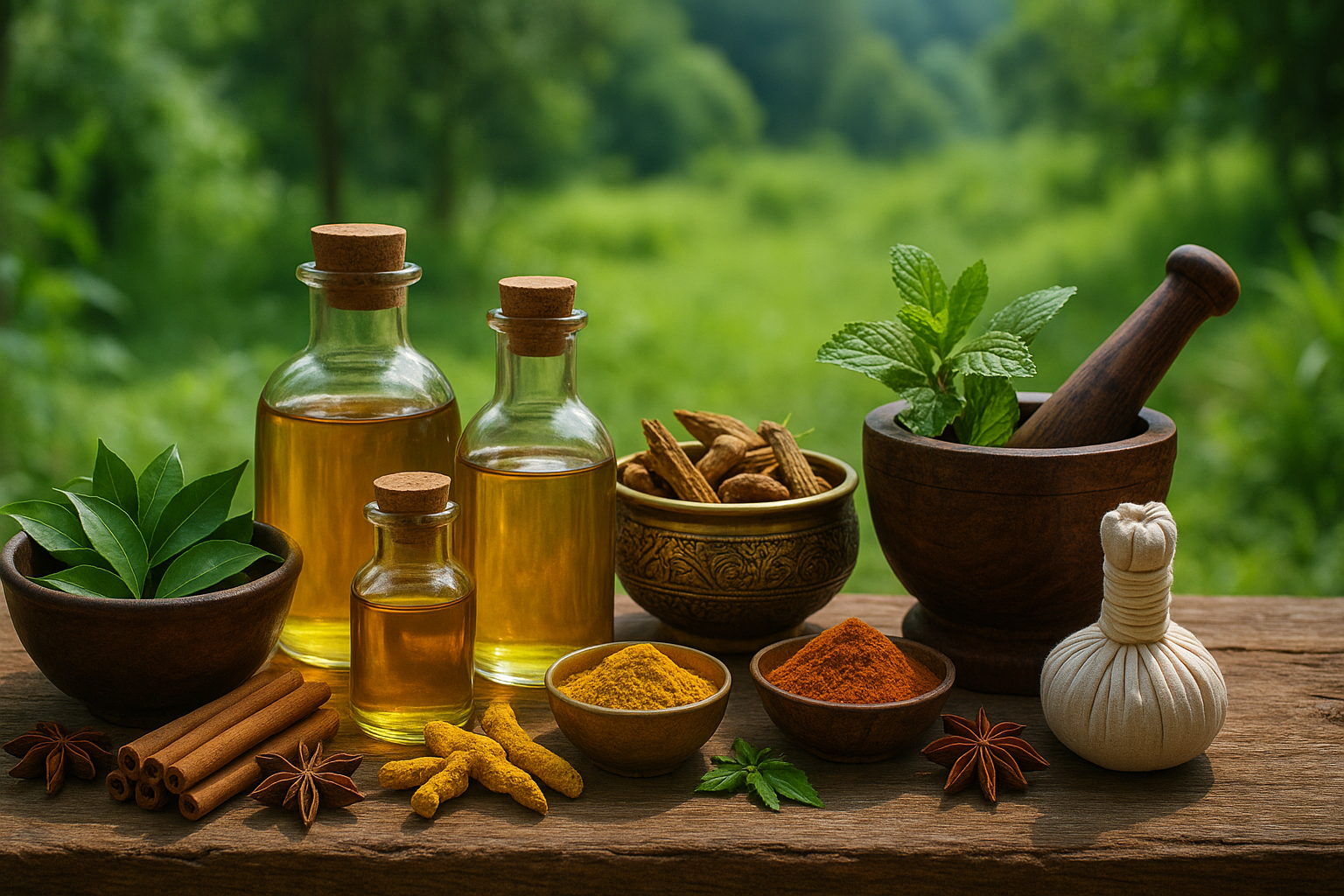In the world of Ayurveda, there exists a golden treasure – a humble spice known as turmeric. Revered for its potent healing properties and vibrant color, turmeric has been a staple in Ayurvedic medicine for thousands of years. From promoting digestive health to reducing inflammation and supporting overall well-being, turmeric holds a special place in the heart of Ayurvedic practitioners. In this article, we delve into the rich history and therapeutic benefits of turmeric in Ayurveda.
A Historical Perspective: Turmeric, scientifically known as Curcuma longa, has been used in Ayurvedic medicine for over 4,000 years. Originating in India, turmeric was not only prized for its culinary uses but also revered for its medicinal properties. Ancient Ayurvedic texts, such as the Charaka Samhita and Sushruta Samhita, extol the virtues of turmeric for treating a wide range of ailments, from digestive disorders and skin conditions to respiratory ailments and joint pain.
The Active Ingredient: Curcumin: At the heart of turmeric’s healing prowess lies its active compound – curcumin. Curcumin is a powerful antioxidant and anti-inflammatory agent that has been extensively studied for its therapeutic potential. In Ayurveda, curcumin is believed to pacify excess Pitta dosha, making it particularly beneficial for conditions characterized by inflammation, heat, and toxicity.
Promoting Digestive Health: In Ayurveda, the digestive system is considered the cornerstone of health, and turmeric plays a vital role in supporting its optimal functioning. Turmeric stimulates the secretion of digestive enzymes, improves liver function, and enhances bile production, aiding in the breakdown and assimilation of nutrients. Additionally, turmeric’s anti-inflammatory properties help soothe digestive discomforts such as bloating, gas, and indigestion.
Alleviating Inflammation and Joint Pain: Inflammation lies at the root of many chronic health conditions, from arthritis and autoimmune diseases to heart disease and cancer. Turmeric’s potent anti-inflammatory properties make it a valuable ally in combating inflammation and relieving joint pain. Ayurvedic formulations such as turmeric paste (known as “haldi doodh” or golden milk) and herbal supplements containing turmeric are commonly used to alleviate inflammation and promote joint health.
Supporting Skin Health: In Ayurveda, radiant skin is considered a reflection of inner vitality, and turmeric is prized for its ability to promote skin health from the inside out. Turmeric’s anti-inflammatory and antimicrobial properties help reduce acne, eczema, and psoriasis flare-ups, while its antioxidant content protects against free radical damage and premature aging. Ayurvedic skincare formulations often incorporate turmeric as a key ingredient to nourish and rejuvenate the skin.
Enhancing Overall Well-being: Beyond its specific therapeutic applications, turmeric is valued in Ayurveda for its ability to promote overall well-being and vitality. Its balancing effect on the doshas helps harmonize the body and mind, supporting optimal health and longevity. Whether consumed as a spice in cooking, brewed into a healing tea, or taken as a supplement, turmeric offers a holistic approach to wellness that aligns with the principles of Ayurveda.
Conclusion: Turmeric stands as a shining example of nature’s healing bounty, revered for its myriad health benefits in Ayurvedic medicine. From promoting digestive health and alleviating inflammation to supporting skin health and enhancing overall well-being, turmeric holds a special place in the Ayurvedic pharmacopeia. As we continue to uncover the scientific evidence behind its therapeutic properties, turmeric remains a golden treasure that continues to enrich our lives and nourish our bodies, mind, and soul.



